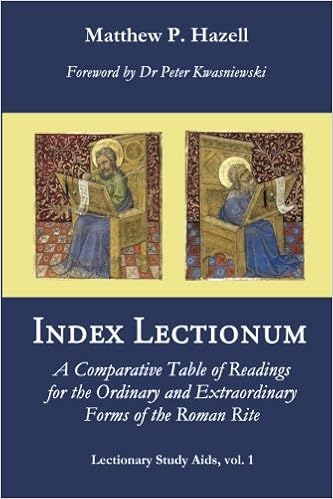Therefore whosoever shall eat this bread, or drink the chalice of the Lord unworthily, shall be guilty of the body and of the blood of the Lord. But let a man prove himself: and so let him eat of that bread, and drink of the chalice. For he that eateth and drinketh unworthily, eateth and drinketh judgment to himself, not discerning the body of the Lord. Therefore are there many infirm and weak among you, and many sleep.
Tough, right?
Does “discern body of the Lord” mean, “notice and attend to the needs of the poor around you?” This is what libs suggest. It’s also what writers in the ancient Church, such as St. John Chrysostom would suggest, and vigorously so! Also, there is a section in Amoris laetitia that has this interpretation. There is nothing in the least new about this. It’s been around for centuries.
Does “discern the body of the Lord” mean merely attend to the needs of the poor? No.
It can and does mean that, but that is not the only thing it means.
It also means being properly disposed to receive the Eucharist, that is, not receiving Communion in the state of mortal sin.
1 Cor 11 refers to our entire moral selves. Hence, 1 Cor 11 involves both concern for mortal sin and concern for the poor. These are, as a matter of fact, flip sides of the same coin: if you are not (according to your ability and circumstances) taking care of the poor, you sin.
Right?
But there are other ways of sinning other than guilty negligence of the poor.
Right?
At this point, review what St. John Paul II wrote about 1 Cor 11 in his Encyclical Ecclesia de Eucharistia 36:
“Along these same lines, the Catechism of the Catholic Church rightly stipulates that “anyone conscious of a grave sin must receive the sacrament of Reconciliation before coming to communion”.74 I therefore desire to reaffirm that in the Church there remains in force, now and in the future, the rule by which the Council of Trent gave concrete expression to the Apostle Paul’s stern warning when it affirmed that, in order to receive the Eucharist in a worthy manner, “one must first confess one’s sins, when one is aware of mortal sin”.75
74 No. 1385; cf. Code of Canon Law, Canon 916; Code of Canons of the Eastern Churches, Canon 711.
75 Address to the Members of the Sacred Apostolic Penitentiary and the Penitentiaries of the Patriarchal Basilicas of Rome (30 January 1981): AAS 73 (1981), 203. Cf. Ecumenical Council of Trent, Sess. XIII, Decretum de ss. Eucharistia, Chapter 7 and Canon 11: DS 1647, 1661.
That was refreshingly clear.
Amoris laetitia didn’t change what John Paul wrote (and which millennial tradition of commentaries and teachings have maintained).
The Church’s doctrine is the same today as it was before 8 April 2016.
The Church’s law is the same today as it was before 8 April 2016.
It remains that a priest cannot be required not to follow the Church’s law and he cannot be prevented from preaching Catholic doctrine, nor can he be compelled to preach something against the Church’s doctrine.
On another note, since I firmly hold that no real renewal of the Church is possible without a renewal of our sacred worship, Peter Kwasniewski pointed out that 1 Cor 11:27-29 was purposely excluded from the Novus Ordo Lectionary. It is, however, in the older, traditional form of Holy Mass, for Corpus Christi and for Votive Masses of the Most Holy Eucharist. A quick consultation of the new book Index Lectionum: A Comparative Table of Readings for the Ordinary and Extraordinary Forms of the Roman Rite shows you that it is missing from the Novus Ordo and is present in the TLM. My post on the book HERE. US HERE – UK HERE – ITALY HERE
Thus, Summorum Pontificum, that great gift of Benedict XVI to the Church, that profound aid in his “Marshall Plan” to rebuild after the devastation against the encroaching dictatorship of relativism, provides a necessary corrective for a serious gap in our worship and, therefore, identity. Once again we hear in our churches, in the context of Mass, “For he that eateth and drinketh unworthily, eateth and drinketh judgment to himself, not discerning the body of the Lord”, knowing full well that it means that we mustn’t approach the Eucharistic Lord for Communion in the state of mortal sin.




































Holy communion, a matter of life and death: http://www.catholicworldreport.com/Blog/3171/holy_communion_as_a_matter_of_life_and_death.aspx
It might be noted that Pope Francis is claiming the proper correct “immediate and direct meaning” of I Cor. 11:27-30, and that any other interpretation is taking the text out of its context or in a generic sense:
“185. Along these same lines, we do well to take seriously a biblical text usually interpreted outside of its context or in a generic sense, with the risk of overlooking its immediate and direct meaning, which is markedly social.”
Now, if Amoris Laetitia IS “an important act of the magisterium” as Fr. Spadero has announced on his Facebook page, according to Edward Pentin ( Scan down to the last paragraph of his article: http://www.ncregister.com/blog/edward-pentin/ewtns-world-over-panel-highlights-problems-with-amoris-laetitia/ ) wouldn’t that give his claim greater weight? But how would that reconcile with the ‘traditional’ understanding of the Biblical passage which has been the basis of doctrine and law?
But father, but father…. all are welcome at the table! No one is to be excluded! You just have to be a ‘good person’! And even if you aren’t, well no one is excluded. There are ‘seeds of goodness’ in ‘irregular situations’ after all. Golly you must hate Vatican II!
Well, this is one problem with the Novus Ordo that can easily be corrected simply by adding the missing verses to the readings for Holy Thursday and Corpus Christi. Until that is done, the priest or deacon preaching can refer to them in his homily and make sure that they are not overlooked or underemphasized. I’ll also remark that one advantage of something that seems to be in a constant state of change is that it also allows for positive change as well as negative change. What goes around, comes around. It’s time to start writing letters so that this is fixed in the fourth edition of the Roman Missal, which I think I can reasonably expect to see in my lifetime. Perhaps Father Z can suggest an address to get the best results– let’s get started!
There are many, many options given in the rubrics of the Ordinary Form of the Mass. There are also many opportunities to change things, invent things, extend things, shrink things, and otherwise modify things in said form of the Mass… without failing to adhere to the rubrics. Ordinarily, this is lamentable.
Might it be possible for a rubricist of the Serpentine Columbid Observance to find somewhere, somehow, some rubric that might allow at some point the use of 1 Cor 11:27-29 in a reading? Perhaps with a dispensation of some kind from a Suitable Authority?
Amoris Laetitia includes an acknowledgement of 1 Cor. 11:27-30, and it adds an interesting elaboration upon what is meant by discerning the body of the Lord:
“The Eucharist demands that we be members of the one body of the Church. Those who approach the Body and Blood of Christ may not wound that same Body by creating scandalous distinctions and divisions among its members. This is what it means to ‘discern’ the body of the Lord, to acknowledge it with faith and charity both in the sacramental signs and in the community; those who fail to do so eat and drink judgement against themselves (cf. v. 29).” (no. 186)
Pingback: MONDAY EDITION – Big Pulpit